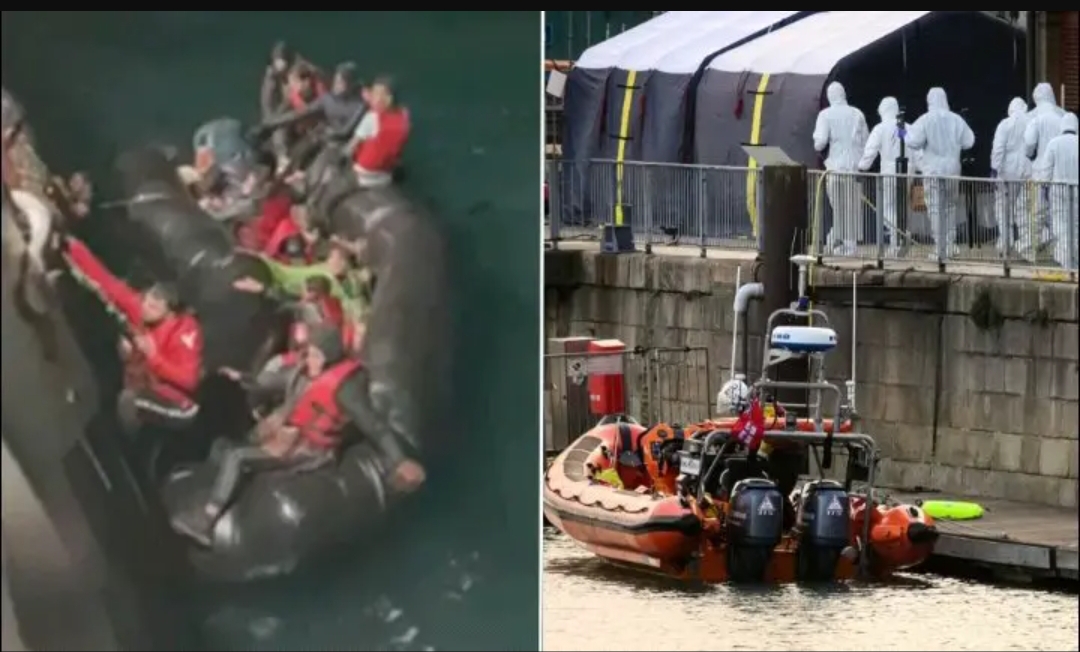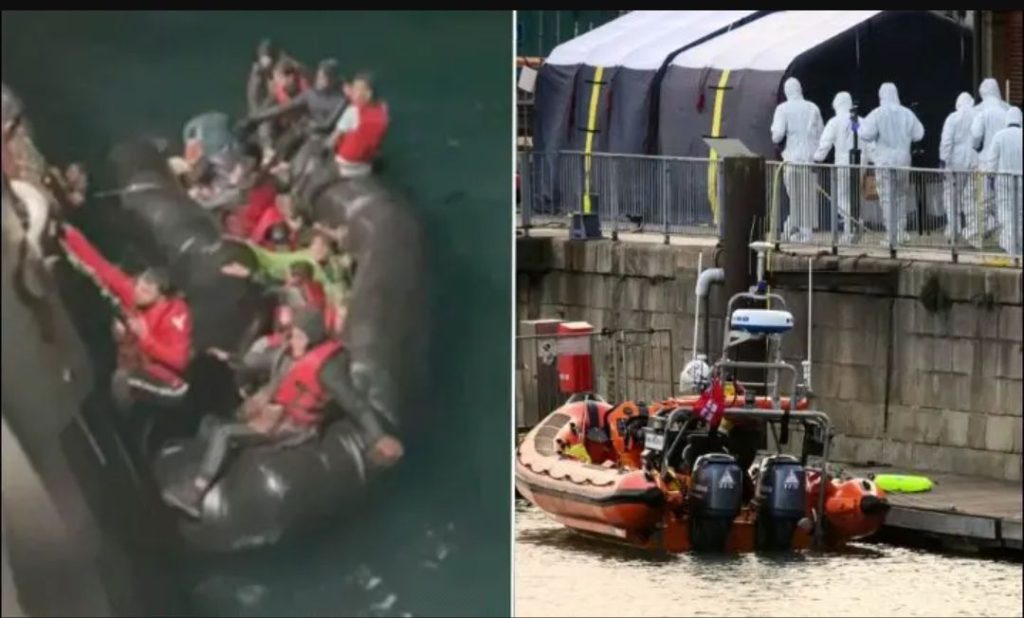
In a deeply distressing turn of events, British coastguards find themselves entangled in a web of criminal charges in France, stemming from their alleged involvement in the tragic deaths of four migrants attempting to reach the UK via the perilous English Channel.
The charges, including “involuntary manslaughter” and “failure to render aid,” were filed by the refugee aid charity Utopia 56, thrusting both the UK and France into a diplomatic standoff. Beyond the legal ramifications, this incident underscores the complexities and risks faced by migrants and the challenges encountered by authorities in responding to distress calls in one of the world’s busiest and most dangerous waterways.

Dailymail, The incident, which unfolded on December 14, 2022, involved a small boat carrying 48 migrants, predominantly hailing from Afghanistan and Iran. Despite rescue efforts by French and British coastguards, the boat capsized, leading to the tragic loss of four lives, some of whom were trapped inside the sinking inflatable.
Utopia 56 alleges a series of grave shortcomings in the response from both British and French authorities, accusing them of being slow and inefficient in their actions. The charity contends that distress calls from the migrants were received around 3 am, prompting Utopia 56 to forward the calls and GPS coordinates to the Cross de Gris-Nez emergency center and British coastguards. Shockingly, the charity asserts that British coastguards did not mobilize until 3:40 am, raising questions about the timeliness of their response.
Accusing the British coastguards of failing to coordinate with their French counterparts, Utopia 56 argues that international maritime law, which mandates assistance to those in danger at sea, was blatantly violated. The charity further alleges that the British coastguards instructed the distressed migrants to either return to France or wait for French rescuers, instead of promptly offering aid.
In response, British coastguards vehemently deny any wrongdoing, asserting that they acted in strict accordance with the law and established protocols. They claim to have received the first call from the migrants at 3:15 am and immediately alerted French authorities, who had primary responsibility for the rescue operation. The British coastguards insist that they deployed two vessels and a helicopter, successfully rescuing six individuals from the water.
Similarly, French authorities defend their actions, emphasizing that they launched an extensive search and rescue operation as soon as they were notified of the incident. They deployed four vessels, two helicopters, and a plane, successfully rescuing five people from the water. The collaboration with British authorities throughout the operation is a focal point in their response.
The case is currently under investigation by the Boulogne-Sur-Mer public prosecutor, who holds the power to summon British coastguards to appear in a French court or issue an international arrest warrant. If charges are pursued, the potential consequences include a maximum penalty of five years in prison and a fine of 75,000 euros.
Beyond the immediate legal implications, this incident has inflamed political and diplomatic tensions between the UK and France, intensifying their already strained relationship over the issue of Channel migration. The UK government accuses France of failing to prevent migrants from leaving its shores, demanding increased cooperation. Conversely, the French government rebuffs accusations of negligence, portraying the UK as inhumane and irresponsible.
This tragedy not only highlights the inherent risks faced by migrants fleeing war, persecution, and poverty but also underscores the complexities of maritime rescue operations in the English Channel. As one of the busiest and most dangerous waterways globally, with strong currents, low temperatures, and heavy traffic, the Channel continues to pose significant challenges. In 2022 alone, over 30,000 migrants crossed the Channel, marking a record number, with more than 100 reported deaths or disappearances.
The case serves as a stark reminder of the urgent need for improved coordination, cooperation, and comprehensive solutions to address the humanitarian challenges faced by migrants and the authorities tasked with their rescue in the treacherous waters of the English Channel. As the investigation unfolds, it remains a poignant example of the human cost and complexities associated with migration and rescue efforts in the face of adversity.




